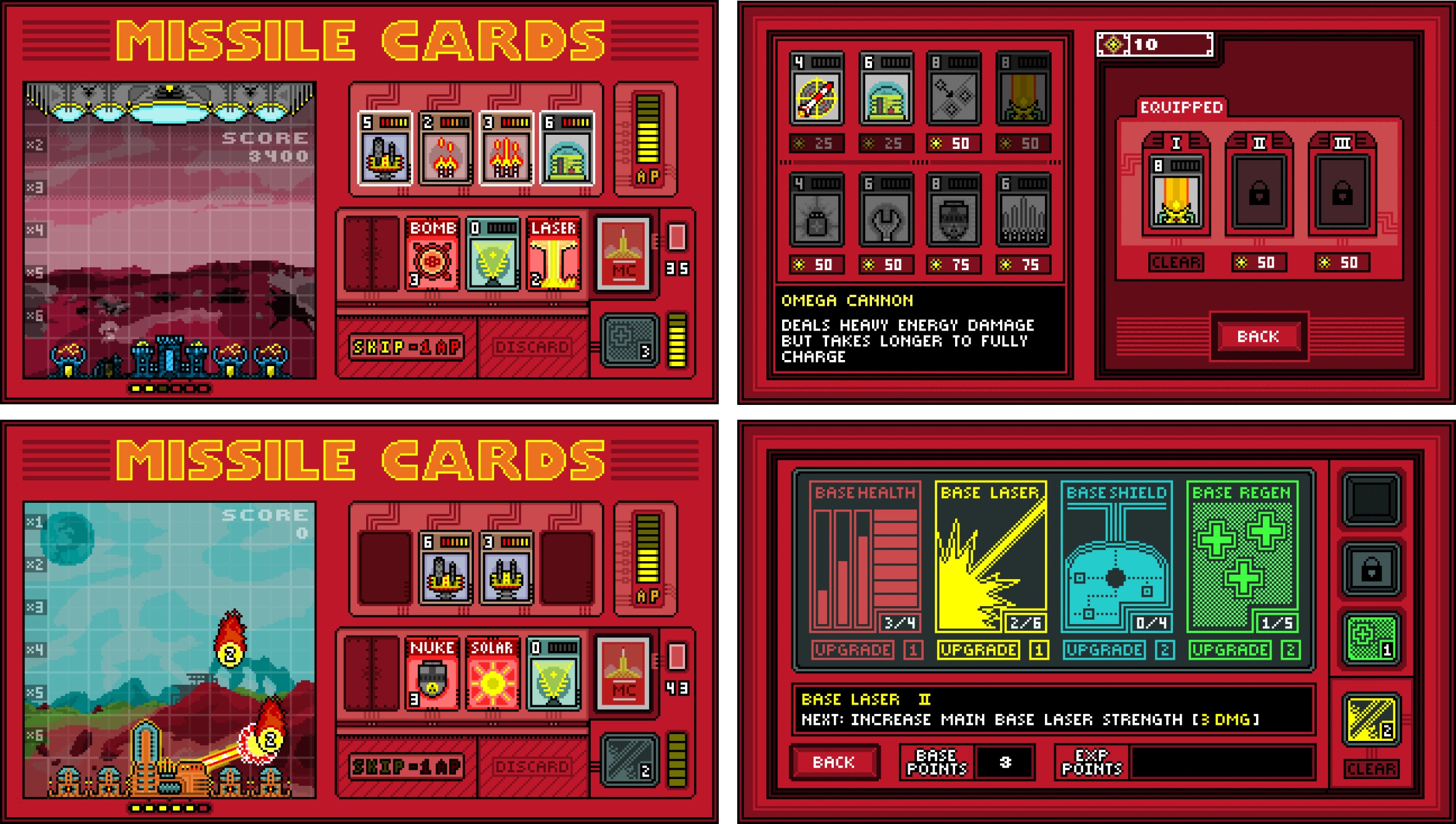Missile Cards, which originally debuted on Steam, combines so many of my favorite game elements - a strategy-based mashup of genres, retro graphics, and a fun chiptune soundtrack - that I knew I had to try it. My only hesitation was that it’s a mashup of a Missile Command-style arcade shooter with a card game, which isn’t one of my favorite genres. My reluctance disappeared the minute I began playing though. Missile Cards is a fantastically fun game that’s incredibly hard to put down.
The screen is split into two parts. On the left are your bases that you must defend from comets and nukes. On the right, is the card playing area. Cards appear from left to right on a conveyor belt. There are three types of cards: hazards, defenses, and utilities. When a hazard card reaches the end of the conveyor belt, it appears on the left-hand side of the screen. Missile Cards is turn-based so with each turn, the hazard creeps a little closer to destroying your bases.
To defend yourself, you move defense cards from the conveyor to one of the four card holding spots. The defenses cost Action Points, so you need to keep an eye on whether you have sufficient points to purchase defenses. Defenses also need to be charged to work, so there’s advanced planning required to make sure your weapons are available when you need them.
Utility cards like batteries can be used to charge up defenses faster. Defenses and hazards also have numbers associated with them that show what it takes to defeat hazards. For example, a level 4 comet can be blown up with a level 4 missile or two level 2 lasers. Defenses are deployed against the closest hazards first, so it’s also important to keep defenses of varying power levels available, so you don’t waste a level 4 missile on a level 1 comet, for instance.
There are two types of bases. If your main base takes a hit, you’re finished. The sub-bases that flank your primary base can take one hit before the game ends though. As a result, it’s sometimes a wise strategic move to sacrifice a sub-base to protect your main base
That’s a lot to consider when devising a strategy as you play, but there’s even more. You can also skip turns, which costs an Action Point and discard cards, both of which add to the games complexity.
The one thing that is a little frustrating about Missile Cards at times is the randomness. Draw a bad hand, and no matter how strategically you play your cards, you’ll lose. On the other hand, that’s the nature of card games with randomly drawn decks, so I can’t get too upset about it. The randomness also works from the perspective of enticing you to play another round because you’ll want to see if you can draw a better set of cards.
Because Missile Cards is turn-based, you don’t have the stressful dynamic of a game like Missile Command. You can play with the simple goal of defending your bases or try to get a high score and XP points that you can trade in for different defenses. The multiple goals add layers to the gameplay that keep Missile Cards from getting boring after multiple plays.
Developer Nathan Meunier has done a terrific job mashing up genres that I would never have imagined would fit together in a way that not only works but is also one of my favorite games of 2017 so far.
Missle Cards is available on the App Store.



